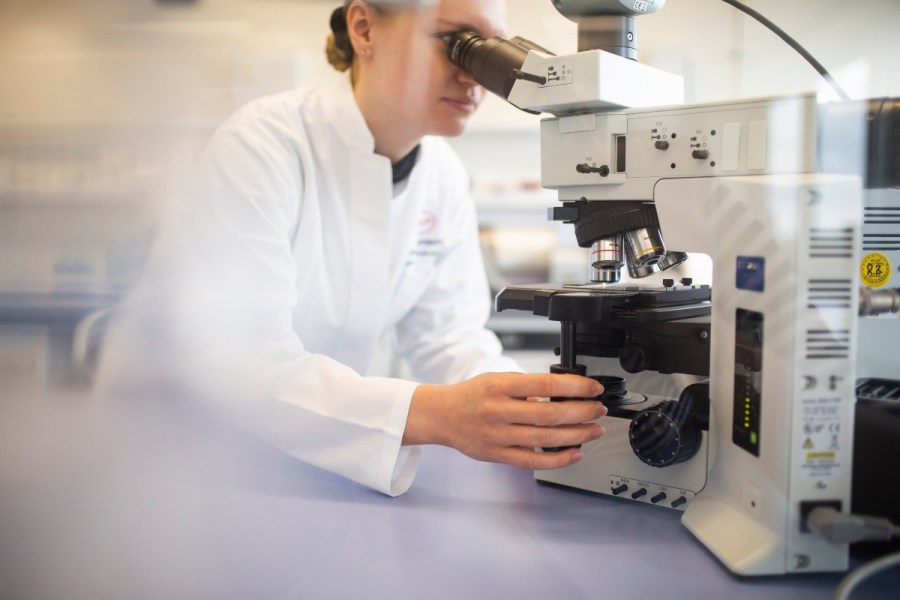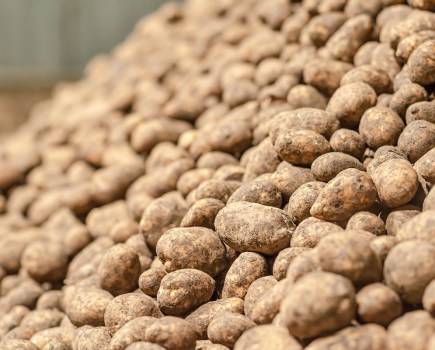After 120 years of success in European and other global markets, Helm has its eyes set on becoming the next big name in UK markets. CPM finds out more about the company.
German manufacturing has always been synonymous with quality, and Helm is no exception.
By Charlotte Cunningham
Helm is likely to be a brand name you haven’t heard of yet.
But with a 120-year history, founded at its headquarters in Hamburg, Germany, the company is far from the new kid on the block. In fact, you may have even used its products, which have been distributed through a third party previously.
But for the first time, Helm plans to sell and market its products into the UK directly – so what can growers expect?
To understand the aims of the company, it’s important to first know more about its heritage. Back in 1900, Karl Helm founded the company, which initially was designed to operate as an import-export firm for a wide range of merchandise.
Fifty years later, Hermann Schnabel took over, changing the direction of the business and putting a primary focus on chemicals, which effectively was the main step-change for shaping Helm into the company that operates today.
In 1962, the first foreign subsidiary was established and in 1966, the company set up in Mexico City.
By the late 1960s, the focus had become set on Asian markets, with Helm Japan founded in 1967.
Expansion continued over the years that followed, and despite this expansion, the firm has been able to retain its family-owned status, while adding multiple divisions to the business – taking it a million miles away from its starting position as a simple merchandise shipment firm.
The goal was to go from supplying generic products to being able to formulate and supply its own developments.
The crop protection division was first implemented in 1976 as one of three departments in the then business unit, ‘chemical solids’ and in 1999 it presented its first own-formulation – a combination product known as Fungomil, which aimed to control downy mildew, leaf blights and rot vines in fruit and vegetables.
From 2002, millions were invested in new registrations led to huge growth, leading to the decision of making it its own business unit in 2009.
Today, the company comprises four core divisions: crop protection, fertiliser, chemicals, and pharmaceuticals, with the headquarters still in Hamburg.
Helm as an entity employs 1684 people in more than 30 different countries, with an annual turnover of $5bn, and 7% of this turnover is invested into research and development every year.
Executive manager for global strategic marketing and portfolio, Dr Hagen Bremer, heads up global strategic marketing and says the changing nature of farming is shaping the direction of the firm in 2021. “Day-to-day, I am responsible for thinking about the future of Helm. This means asking, what direction should we be heading in? And what should our portfolio look like?
“This all has to be done in line with the overall global crop protection strategy, while ensuring we are producing products that satisfy farmers’ needs.”
In the UK, Hagen says the focus is particularly on a ‘holistic crop approach’, whereby growers can make use of Helm’s expertise in three main areas: crop protection, fertiliser, and digital solutions. “It’s about providing modern solutions to help growers steer the direction of their future business.
“Regulatory requirements are changing and so are environmental pressures and consumer demands. But by taking a more holistic view of the solutions, we can provide the means to solve farmer challenges without compromising on the expectations of consumers or working to the detriment of the environment.”
With biological solutions increasing in importance and attractiveness, this is another area the firm is looking to invest in, explains Hagen. “The most important thing for us is to provide genuine solutions.”
These plans are already in motion, says Johann-Christian Niendorf, head of department in global technical management, who is responsible for creating and trialling new products and concepts.
“Myself and my colleagues carry out proof of concept work in our laboratories in Hamburg to analyse potential product performance in the field. We do this for internal products and also partner with small, innovative third-party companies – particularly those with innovation in the area of alternative crop protection, such as biologicals and biostimulants.
“With that information, we’re able to build up a project scope which feeds the pipeline of innovation.”
When the products are developed, trials and testing is carried out by external service providers, he adds. “Depending on the concept we work with universities too.”
Johann adds that there are a lot of products on the horizon, all of which are in the early stages of development and therefore it’s too soon to talk about. “What I can tell you, however, is that we are reviewing several novel concepts that support plant development and overall crop health and have seen some very interesting results over the past year in particular.
“Depending on the route of registration we take, this will dictate how soon we can get the products to market, but there are certainly a lot of interesting concepts and products which we have tested and are confident in that we look forward to presenting to the market.
“We’re seeking inspiration from a huge range of sources, including universities, pharmaceutical companies and even companies from outside of the sector who believe they have found leads or technology that can be applied to agriculture – there’s huge potential in innovation.”
Where there is new innovation, there often follows question regarding usage, regulation and how to get the best out of products. Dr Kristin Krome heads up the scientific assessment department and is responsible for providing this information. “We are responsible for all of the scientific questions around products, ensuring we have high quality products and looking at which actives and formulation types we can use, and efficacy – for me, it’s all about quality.
The team under Kristin are tasked with looking at global regulations to submit product registrations to the relevant authorities – with the goal of ensuring consumer, human and environment health is prioritised.
In terms of regulatory affairs, matters are more complex due to Brexit, she explains. “As the UK was traditionally always a part of the EU, we have long had a harmonised approach to the regulations.
“But that has changed after Brexit and we are working closely with Chemicals Regulation Division to ensure our products satisfy UK priorities and rules.”
For UK growers Helm’s new crop protection sales manager, Douglas Dyas, is likely to become a familiar face.
He believes the company will bring something unique to UK markets. “Our aim is not to make our own judgement, or force products on farmers if it’s not the solution they are looking for.
“Instead, we want to develop relationships with growers and bring solutions to the market which they have specifically asked for.”
From a product point of view, there are a selection of products already available for UK markets and other registrations waiting in the wings (see table). “We also have a list of actives we’re potentially looking at developing based on customer feedback,” he adds
Douglas says that the goal is to become an established, credible crop supplier in the UK. And though the name Helm will be new to many, Helm’s heritage means growers can be confident in its offerings. “German manufacturing has always been synonymous with quality, and Helm is no exception.”
While all of the employees spoken to by CPM operate in different departments, and with different specialities, one strength they were all unanimous on is the benefit being a ‘small’ family-owned company brings to its customers. “There’s a much shorter chain of command compared with bigger companies, meaning we can work hard and fast to transfer farmer feedback into a tangible product to tackle key challenges on farm,” notes Hagen.
Johann adds: “The history of the company allows us to act differently in the market. We are family owned – not listed on the stock exchange or chasing quarterly results – and have a long-term plan to maintain Helm’s position in the market, which is a really important part of our ethos.”
Digital developments
With Helm taking a self-proclaimed holistic view on crop production, the firm also has its own digital precision farming platform, Skyfld, making it a one-stop-shop for arable farmers.
Douglas says Skyfld is Helm’s investment in the future, developed by specialists within the fertiliser and crop production divisions. In a nutshell, Skyfld enables users to create variable rate application maps, as well as the capability to monitor the health of their crops remotely.
Key features include:
- Biomass maps
- Seed maps
- Fertiliser maps
- Variable rate PGR mapping
- Scouting and sharing to simplify crop monitoring and information sharing
- Weather data
- Historical cropping records
- Compatible machinery to integrate variable rate application maps into machinery.
Arguably, digital farming software is becoming a pretty saturated market, so where are the point of differences within Skyfld?
“One of the key differences is that Skyfld is a stand-alone product, and completely decoupled from the chemical division. This means that growers don’t have to use our products to be able to optimise the software.
“Another point to note is that not all mapping software allows wavelength adjustments to see minor plant health/cropping differences, but Skyfld does.”
What’s more, the software also features a field vitality graph which enables users to see field development from one month to up to two years, to really allow them to analyse the farm’s historic performance, adds Douglas.
“We strongly believe these tools add value to farmers and will help businesses become more sustainable. Our modules will continue to develop based on farmer-feedback.”
Key stats
1900 Helm was founded in Hamburg by Karl Otto Helm
1684 The number of employees globally
$5bn Annual turnover
100 Subsidiaries worldwide
30+ Countries with Helm offices and presence
Company profile
CPM would like to thank Helm for kindly sponsoring this article and for providing privileged access to staff and materials used to help put the article together.
Product offerings in the UK
| Name | Purpose | Key aspects |
| Meruba 100 SC (mesotrione) | Weed control in maize | · Optimum efficacy
· Greater label usage flexibility |
| Modan 250 EC (trinexapac) | PGR approved for use in oats, barley (spring and winter), rye, winter wheat and triticale | · Extensive testing and developed in-house to optimise ‘stick and spread’ characteristics.
· Supplied in a 3-litre can to minimise waste and time. |
| Helmstar 75 WG(tribenuron) | Weed control in winter wheat | · Trials have demonstrated control of 22 different weed species |
| Glyphosate 450 (multiple brands) | Broad-spectrum weed control | · Higher load formulation of 450g/l, compared with market standard of 360g. This reduces packaging waste.
· Improved wetting formulation to ensure performance |
| *NEW*
Prothioconazole |
Broad-spectrum disease control | · 300g/l formulation as opposed to 250g/l standard. Potential to reduce waste. |
| *PRIORITY DEVELOPMENT*
A new herbicide (details not yet available) |
Weed control, specifically spring weed control | · Should enable greater flexibility for cost-effective tank mixing |




